Afghanistan War, CIA Sponsored Terror, Civil Liberties, Criminalizing Dissent, Extraordinary Rendition, FBI Intrusion, Habeas Corpus, Human Rights, Military Tribunal, Political Prisoner, Prison Industry, Surveillance, Targeting Muslims, Torture, Truth to Power, War Resister
Podcast: Play in new window | Download
Updates:
- Michael Ratner: Bradley Manning’s Defense Makes Case To Dismiss Aiding The Enemy Charge
- Freedom of the Press Foundation For Transcripts
- Update: Judge Upholds Aiding The Enemy Charge in Bradley Manning Trial
—
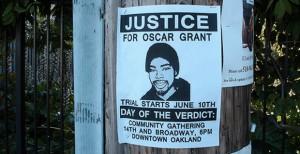
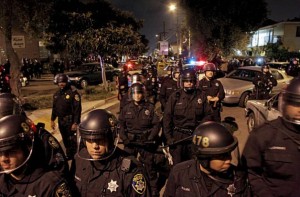
NLG Obtains $1.17M, OPD Reforms for Occupy Oakland Protesters and Journalists
In recent weeks, attorneys from the National Lawyers Guild achieved two significant victories for the rights of protesters faced with police brutality and unlawful repression. The first came when the city of Oakland settled a class action lawsuit for more than 1 million dollars. The second victory occurred in early July when Oakland City Council approved a settlement for 1.17 million in another lawsuit arising from police actions at protests. As part of these settlements, the Oakland Police Department is now legally obligated to follow a crowd control policy. This policy which already existed but lacked enforcement outlines limits on police department officer’s use of force and the ability to make mass arrests in protest situations.
Attorney Rachel Lederman:
- The first case has to do with the demonstration that had occurred on the day Johannes Mesterly was sentenced for the death of Oscar Grant. That’s the BART officer who shot Oscar Grant in the back as he was restrained facedown on the subway platform.
- There’s a movie out about the last day in the life of Oscar Grant called Fruitvale Station that I would highly recommend seeing it’s playing all over the country now.
- The death of Oscar Grant sparked a large number of demonstrations. November 5, 2010 was the date that Mesterly was sentenced and he was given a very minimal sentence of involuntary man slaughter of 2 years, 11 months with time served.
- There was a demonstration planned for that evening it was actually a very small demonstration. OPD had planned to not allow a march after dark.
- There was a rally that was permitted in downtown Oakland and then about 200 people started marching in the direction of Fruitvale Bart where the shooting had occurred. As soon as the march started the police began to set up for mass arrest.
- When a police line would be erected in front of the march people would naturally turn another direction. This went on for a while, where the march was re-routed.
- Eventually the OPD herded people to a residential area where they didn’t intend to go. The police announced it was a crime scene and began arresting everyone.
- The Oakland City Police have been under consent decree since January 2003 mandating reform process.
- We’ve had this crowd control policy in place but basically every single provision of the crowd control policy was violated in the Occupy Oakland incident and the Oscar Grant incident.
- We brought those cases to try to enforce the crowd control policy. A lot has changed in the last six months.
- There’s also been a new shake up of command (OCP) there’s a new acting chief.
Guest – Rachel Lederman, a California based National Lawyers Guild attorney who worked on both cases. Rachel first got involved in police misconduct civil rights cases as a result of her criminal defense work with political demonstrators. In 1989, Dennis Cunningham and Rachel Lederman successfully sued the San Francisco Police to obtain justice for AIDS activists who had been brutalized and unlawfully detained in what became known as the “Castro Sweep”.
—–
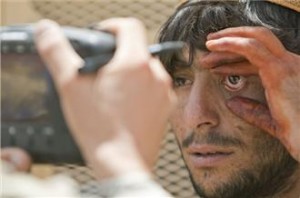

Surveillance Blowback: The Making of the U.S. Surveillance State, 1898-2020
What is the history and context of surveillance in the United States? Last week Scott Horton explained how the Foreign Intelligence Surveillance Act court devolved into a panel of judges making decisions in secret that influence federal law. Returning guest Alfred McCoy traces the US surveillance apparatus back to the late 1800s and brings us up to understanding the context of leaked NSA documents by whistle-blower Ed Snowden. In his latest article titled Surveillance Blowback: the Making of the U.S. Surveillance State 1898-2020, Al McCoy, Professor of History at the University of Wisconsin-Madison details the surveillance timeline beginning with the US occupation of the Philipines and makes the connection to US imperialism abroad and apathy at home.
Professor Alfred McCoy:
- Four years ago I published a book called Policing America’s Empire which started in the Philipines and started the history of US domestic surveillance through what I call surveillance blowback.
- It’s the trajectory of history that allows you to see this.
- In the late 19th century America had what I call our first information regime which was really a brilliant synergy of discoveries.
- Thomas Edison’s quadruplex telegraph, Remington’s typewriter allowed the transmission around the world, across the nation, absolutely accurately at 40 words a minute.
- The Gamewell Corporation for a half century during the 19th century was the world leader in the development of police telegraph and telephone communication – those police boxes that used to be on the streets of every American city.
- The Gamewell Corporation had 900 of these boxes in operation and collectively they sent 41 million messages in the year 1900.
- When we intervened in the Philippines we were suddenly faced with this massive insurgency, this guerrilla underground. We smashed the regular military formations but we couldn’t break the insurgency.
- The US military in order to pacify that country created the first field intelligence unit in its 100 year history.
- They appointed an obscure medical doctor Captain Ralph Van Deman to be the head of the division of military information.
- He decided he would map the entire Filipino political elite.
- William Howard Taft passed very draconian sedition and libel legislation and created a powerful colonial secret police called the Philipines constabulary. It took about 10 years to accomplish. 1898-1907
- We had to track down the politicians (Philipines) we had to manipulate them.
- 10 years after that process, the US joined WWI. April 1917.
- The United States was the only army on either side of the battlefield that didn’t have an intelligence service with any description.
- We turn now to Colonel Van Deman who applied his Philippines experience to developing a very elaborate counter-intelligence apparatus inside the United States.
- Mr and Mrs Van Deman ran a private intelligence service that had Army file clerks and regular FBI liason officers dropping by.
- And from their home they compiled files on 250 thousand suspected subversives.
- They divided the world. Basically, North America, Latin America became the purview of the FBI for counter-intelligence the rest of the world became purview of US military intelligence and of course the CIA and then NSA.
- That division of the word remain in effect until December 2011.
- 3 million Afghani iris scans and fingerprints are housed in a main frame computer in West Virginia.
- So, we developed then, this very efficient system of surveillance and digital monitoring overseas.
- During the war on terror we now know the Bush Administration beginning October 2001 authorized the NSA to start massive capping of all digital communications.
- In March of this year, it was 97 billion emails that were tapped by the NSA.
- This began migrating home very very quickly.
- When Obama came even though he criticized this illegal wiretapping, when he came in, instead of cutting it back like the Republicans did in the 1920s, he decided to build upon it.
- What he’s building upon it for is to build an architecture for the exercise of global power through a significant edge or advantage for information control and information warfare.
- Obama wants to cut back on the appropriations for the big behemoths, the heavy tanks, the big ships and he wants to shift us into an agile form of information warfare and global information control.
- The NSA is spending 1. 6 Billion dollars for the world’s biggest data farm in Bluffdale, Utah.
- The National Geo-spatial Intelligence Agency has a nearly 2 billion dollar headquarters with 16 thousand employees in DC.
- The Obama Administration has launched a new generation of light low cost, very agile satellites that can be remotely controlled from the ground, serving ground force commanders.
- The Obama Administration is also building an armada of 99 Global Hawk drones with 24 hour flight capacity. These are surveillance drones with a 100 mile ambit for sucking audio communications.
- With the combination of drones sucking up the local two way radio – cell phone communication with the tapping of the fiber optic cables within the US by the NSA, and internationally by the Five Eyes Coalition, Canad Australia, New Zealand and Britain, means that the NSA will have a total global surveillance system for the first time in human history.
Guest – Alfred McCoy, Professor of History at the University of Wisconsin-Madison. His recent book, Policing America’s Empire: The United States, the Philippines, and the Rise of the Surveillance State (2009), draws together these two strands in his research–covert operations and Philippine political history–to explore the role of police, information, and scandal in the shaping both the modern Philippine state and the U.S. internal security apparatus. In 2011, the Association for Asian Studies awarded Policing America’s Empire the George McT. Kahin Prize, describing the work as “a passionate, elegantly written book.” He’s also the author of “Torture and Impunity: The U.S. Doctrine of Coercive Interrogation.” Al is also the author of “A Question of Torture: CIA Interrogation, From the Cold War to the War on Terror” and “The Politics of Heroin: CIA Complicity in the Global Drug Trade. The first edition of his book, published in 1972 as The Politics of Heroin in Southeast Asia, sparked controversy, but is now regarded as the “classic work” about Asian drug trafficking.
—————————————————
CIA Sponsored Terror, Civil Liberties, Crony Capitalism, Guantanamo, Habeas Corpus, Human Rights, Military Tribunal, Political Prisoner, Prison Industry, Prosecution of the Bush Administration, Supreme Court, Surveillance, Targeting Muslims, Torture
Podcast: Play in new window | Download
Updates:
- Prisoner’s Hunger Strike: Pelican Bay Prison, Guantanamo Bay Prison, Palestinians In Israeli Prisons
- CCR Lawsuit – Pelican Bay Prisoner Class Action
- 20 Plus Palestinians On Hunger Strike In Israeli Prisons Demand Better Conditions For Pelican Bay Prisoners
- Federal Judge Gladys Kessler Says the President Is The One To Stop Force Feeding and Release Cleared Guantanamo Bay Detainees
- Bradley Manning Trial: Important Proceedings During Defense Case At Ft Meade, Maryland
—-
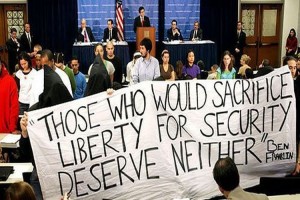
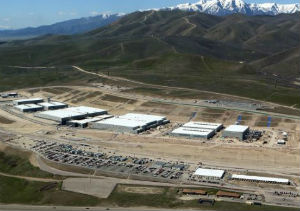
Secret Federal FISA Court Advocate of National Security State
Here on Law and Disorder we’ve discussed the process of the US government expanding its power to get wiretapping permission from the Foreign Intelligence Surveillance Court or FISA court. This is under a provision called section 215 of the Patriot Act which if listeners might recall was set to expire in 2009. It did not. We discussed how the FISA court will be accessed by what’s called Lone Wolf Authority or National Security Letter Authority whereby the FBI can write a letter to the court without suspicion of terrorism and get bank, telephone and internet records.
The 11-member FISA Court has been central to allowing a massive surveillance state to exist by granting US agencies such as the NSA access to private telecommunication data. Today, the FISA court essentially operates as an advocate for the national security state. It’s judicial oversight now parallels the Supreme Court. But more troubling, these FISA Court Justices operate in complete secrecy and base their decisions from hearing only one side the argument, the US government’s.
Attorney Scott Horton:
- The Nixon Administration attempted to use “intelligence gathering” as a justification. Congress reacted to that by saying we’re not going to agree that the government has the right to wiretap people in the United States on the grounds of intelligence gathering. We’re going to require this judicial check, so Congress created this special court the FISA court.
- The court has been around for a long time, but its become a far more significant entity doing much more work after 9/11.
- It has 11 judges. The judges are selected by the Chief Justice of the Supreme Court, John Roberts.
- The judges are picked from courts all around the country.
- It’s not a secret court in that we know that it exists. It IS a secret court in that it operates in secret.
- Literally, the public doesn’t know what papers are filed with it and doesn’t know about its decision.
- That’s a highly controversial matter because decisions by federal courts constitute law.
- This means that this court is manufacturing secret law that the people don’t know about.
- We don’t know the jurisprudence of this court, we don’t know its decisions, we don’t know the full rationale for all its decisions because most of them have been secret.
- It is very aggressively expanding the power and authority of the NSA in surveillance areas.
- This is a court picked by Roberts who share his attitude. Out of 11 judges we have 10 Republican appointees. It’s very well known that Roberts in making appointments here looks very closely to select only judges who reflect his attitudes about the national security state.
- It is a cherry picked court. A movement conservative perspective which is quite hostile to civil liberties.
- The court has become an advocate for national intelligence services.
- It really puts the whole institution of the court under a cloud right now.
- If you want to disperse that cloud you would make sure those judges are representatives of the country.
- The legal reasoning and interpretation of statutes that should be there for people to see and know and understand and criticize.
- Telecoms: Here they are service providers dealing with consumers, lying to their clients and allowing the government free access to all this information.
- That is a criminal act under various statutes of states including New Jersey and Maine. That have rules that say they may not allow governments, investigators access to this information other than pursuant to a government subpoena or court order.
- This court is sweeping away core rights and making a joke out of the 4th Amendment.
- Whistle-blower damage control strategy: A program to deflect attention from the disclosures themselves.
- There is a move afoot to take this out on the American service providers who cooperate with the NSA, Verizon, AT&T. . .Google and so forth.
Guest – Scott Horton, human rights lawyer and contributing editor to Harper’s Magazine. Scott’s column – No Comment. He graduated Texas Law School in Austin with a JD and was a partner in a large New York law firm, Patterson Belknap Webb & Tyler.
—-
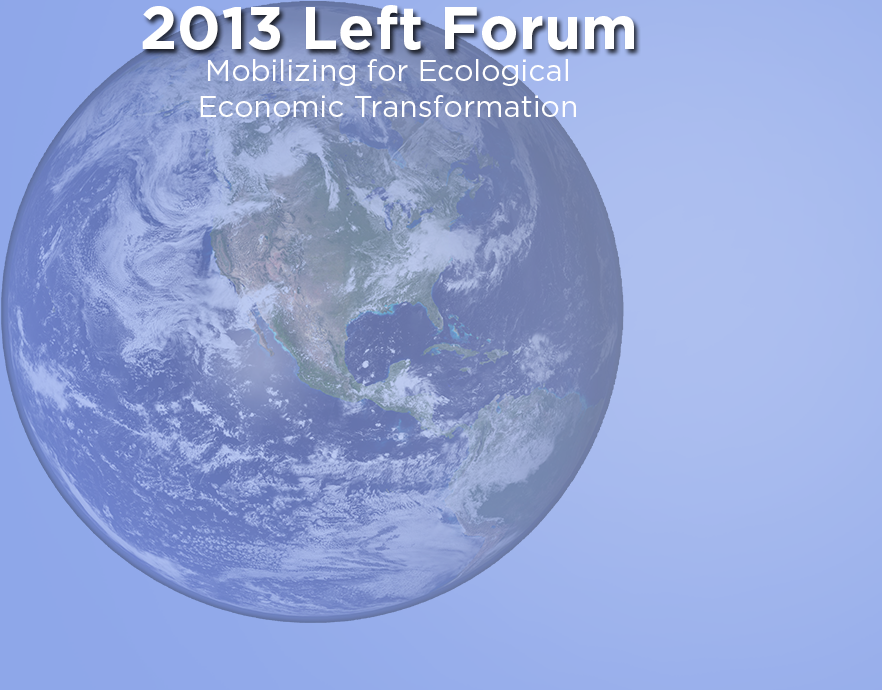
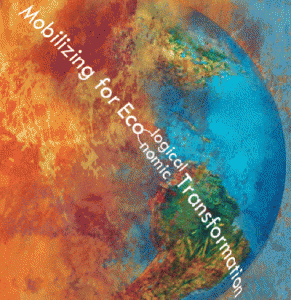
Left Forum 2013: Ron Reosti
Capitalists are not necessary to run firms, nor to run macro-economies and investment says Ron Reosti in his presentation at the Left Forum Panel titled Imagine Living In A Socialist USA, Part 2: Making The American Socialist Revolution.
Speaker – Ron Reosti, his Italian parents imparted to him a working-class identity, a sense of social justice, a belief in the possibility of social change, a commitment to democracy, and a hatred of the undemocratic ruling class. He embraced socialism in his early teens, during the McCarthy era, and has remained committed to that vision. He practices law and is part of the radical community in Detroit.
———————————————-
CIA Sponsored Terror, Civil Liberties, Habeas Corpus, Human Rights, Political Prisoner, Targeting Muslims, Truth to Power, War Resister
Podcast: Play in new window | Download
Updates:
—-
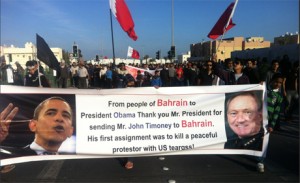
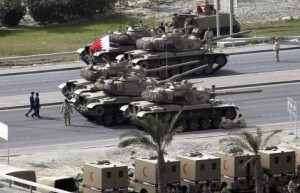
White-washing Human Rights Abuses and Suppressing a Popular Revolution
Two years since the Arab-Spring demonstrations erupted in Bahrain, human rights abuses continue to this day. In 2011, an independent report exposes these abuses that compelled the Kingdom of Bahrain to hire former NYPD police chief John Timoney to white was acts of political repression. Who is John Timoney and why was he outsourced to Bahrain? We ask legal worker and journalist Kris Hermes who recently penned the article John Timoney and Kingdom of Bahrain: White-washing Human Rights Abuses and Suppressing a Popular Revolution.
Kris Hermes:
- Shortly after the Arab Spring began in 2011, Bahrain followed in the footsteps of Tunisia and Egypt by demonstrating against the ruling monarchy that’s been in power for more than 200 years.
- Those protests were met with intense repression by King Hamad.
- The protests made of the Shiite population who argue they’ve been systematically discriminated against in employment, housing, education.
- The ministry of interior hired John Timoney as well as John Yates who is from the UK.from Britains metropolitan police department.
- John Timoney started with a long career in the New York City Police Department, he was probably most well known for his handling of the Tomkins Square Park riots in 1988.
- Regardless of what he did to clean up the Philadelphia Police Department, his handling of the Republican National Convention protests were abysmal. He came down very hard on protesters in 2000, essentially establishing a new form of policing in the United States that for the most part was intolerant of political demonstrations.
- He became the police chief of Miami in 2002 and oversaw one of the most violent police reactions in modern history. He not only used what he learned in Philadelphia, conducting preemptive raids, using infiltration and heavy surveillance, brutalizing protesters on the street, and wrongfully arresting hundreds of people.
- In Miami he used a whole panaply of weapons against protesters, including tear gas, pepper spray, rubber and wooden bullets, bean bag rounds, tasers and electric shields.
- He gained a reputation both in Philly and Miami.
- He’s been in Bahrain for a year and a half now and has a two year contract and its just about up.
- That’s the reason why the article was done, an assessment on how Timoney has done in Bahrain in terms of his crown control measures.
- Andrews International: Part of a security apparatus that is increasingly private in terms of policing and security personnel that are deployed around the world.
- It allows the US to expand its militia around the world as well.
- The death toll of political demonstrators has only increased since Timoney arrived on the scene. One of his favorite tools to suppress demonstrations in the United States is tear gas.
- Things are pretty dire for political dissidents in Bahrain.
Guest – Kris Hermes, activist who provides legal support work on cases involving political dissidents.
—-

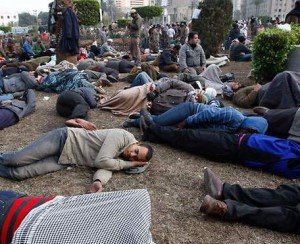
Egyptian President Mohamed Morsi Ousted Following Days of Massive Largest Anti-Government Protest
Last week, democratically elected President Mohamed Morsi was ousted following historic demonstrations by Egyptian protesters. Morsi and his advisors have been held under house arrest in the Egyptian Republican Guard Club, the highest Brotherhood leader, Mohammed Badie, and some associates of his have been arrested. Protesters accused Morsi of supporting Obama’s anti-Syrian agenda, ignoring critical economic problems and betraying his support for Palestinians. However, what are the some of the economic issues involved that led up to these massive protests?
Omar el-Shafei:
- We’re going through a real historic process. At least you had 20 million people in the streets expressing their anger in different Egyptian cities.
- This is a continuation of the process that started in January 2011, not just Egyptian but an Arab phenomenon.
- I think its a complete anger, bitterness and disillusionment of the rule of the Muslim Brotherhood.
- We have to remember that the Muslim Brotherhood has been the largest opposition force during the last decade of the Mubarack dictatorship.
- After one year in power they managed to alienate everybody. They were essentially ruling as a continuation of the old regime, and pro-imperialist foreign policy.
- The dominant image of the Arab Spring is purely political, middle class, youthful mobilization aiming at democratizing despotic regimes.
- The Mubarack dictatorship for years and sometimes decades have applied neoliberal economic policy that tremendously increased class divide, so the social element of this revolution was vital.
- In the case of Egypt, the revolution in 2011 came after five years of the biggest wave of workers struggle in the history of the country, since the 1940s.
- The continuation of the revolution is in large part of the worker mobilization. After the revolution we didn’t have independent trade unions, they incorporated by the state.
- More like the agent of the state against the liberal movement.
- Since then we’ve witnessed an emergence of thousands of trade unions and they are playing an important part in the revolution in social demands.
- The message from below even when it is apparently limited demands it has the potential of raising people’s confidence and enhance a process of self radicalization that can link these demands to a wider vision of transformation in society.
- What happened in Turkey a few weeks ago and Brazil more recently has very much has inspired the Egyptian struggle.
- What we are witnessing is a huge mobilization against the Muslim Brotherhood. The military prefer to remain in the background.
- We are in a prolonged revolutionary process and I think that the people are learning from their own experience.
Guest – Omar el-Shafei, political activist, and independent researcher currently living in NYC. He is a doctoral candidate of International Law at Paris VII University in France. Omar is a founding member of the “Committee of Solidarity with the Struggle of the Egyptian People” in Paris, France, and author of “Workers, Trade Unions, and the State in Egypt, 1984-1989,” Cairo Papers in Social Science, American University in Cairo Press (Volume 18, Monograph 2, Summer 1995).
———————————————————————
Afghanistan War, CIA Sponsored Terror, Civil Liberties, FBI Intrusion, Human Rights, Political Prisoner, Surveillance, Targeting Muslims, Torture, Truth to Power, War Resister
Podcast: Play in new window | Download


Hosts Discussion On Snowden and Manning Cases.
Attorney Michael Ratner:
- There’s a lot of support out there for what Snowden revealed.
- This big program of massive surveillance against all of us, internet surveillance, cyber wars, there’s a tremendous amount of support for him. Editorials in the times basically saying it’s not treason.
- NYTimes: Snowden not nearly as reckless as Bradley Manning (same position as Faiza Patel at Brennan Center)
- Protecting Snowden and throwing Bradley Manning and the war crimes he revealed, under the bus.
- This whole claim that it was a data dump by Bradley Manning that he went into the documents and dumped everything not knowing what was in them is false. I know its false from sitting at the trial.
- I heard Bradley Manning testify as why he did each set of documents. The Iraq war logs, the Afghanistan war logs, the collateral murder video, the State Department cables.
- In each case he came with a moral and political reason for doing them.
- The fact that people are still accusing Bradley Manning of a data dump is outrageous and actually the prosecutors position.
- Snowden did something really important, we’ve all known or suspected we’re under massive surveillance. We now have it confirmed and its as bad or worse as we could imagine. It’s every phone call we make, everyone, every single phone call in this United States. It’s a surveillance program against us.
- What Bradley Manning revealed was the U.S. committing war crimes against others.
- I think its easier for American people to hear, “we’re being surveilled than to care about the fact that America is committing war crimes all over the world” because that actually goes to the heart of an imperialist country.
- Cypherpunks predicted exactly what happened: Surveillance is now cheap. You get decent quality storage of all German telephone calls on a certain type of computer for 30 million Euros including administrative overhead for pure storage.
—-
Attorney Heidi Boghosian:
- It really does away with the standards of reasonable suspicion or probable cause to open an investigation.
- It’s saying that we’ll open an investigation and this will be on information that hasn’t even happened.
- Stored Data: The government has access to that. There’s data out there that you can never really get rid of. Corporate intelligence firms or military contractors working with the government comprise about 70 percent what’s given to the intelligence budget.
- The government has to hire out contractors because they’re the only ones able to use this sophisticated technology. The data that is collected, stored and resold, contains a high rate of inaccuracy.
—
Attorney Michael Smith:
- Booze Allen which is the private contractor that Snowden worked for is part of the Carlyle Group.
- The Carlyle group is a private equity firm that’s worth a 158 billion dollars. The ruling class in this country own a chunk of the Carlyle Group.
- Clapper who’s know the head of national intelligence used to be a big executive with Booze Allan.
- The head of Booze Allan used to be one of the main guys at the National Security Agency.
- Privatizing Intelligence, the private sector has a duty to its share holders.
—————–
Pardon Ed Snowden
Pardon or Free Bradley Manning
https://petitions.whitehouse.gov/petitions
—
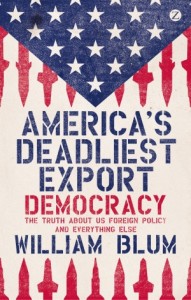
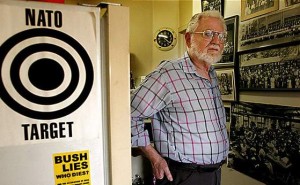
America’s Deadliest Export: Democracy
The United States war machine has been on auto pilot for the past 65 years says our guest William Blum he’s author of the recently published America’s Deadliest Export: Democracy – The Truth About U.S. Foreign Policy and Everything Else. This provocative book exposes the true motives of America’s foreign policy and outlines steps to take action.
William Blum:
- All this while I was looking to find reasons for it, to explain this weird record.
- What I was left with to believe that it’s world domination that the U.S. wants for various reasons.
- Once you understand that, many things become clearer, much less confusing.
- We’re dealing with a lifetime of indoctrination. It starts in kindergarten. People like you and I have a long battle on our hands to overcome this.
- We’re subjected to the indoctrination means well and its the most honorable and liberal government in the world.
- It’s reinforced in high school and college, on television, in the print media, it’s a major task for the likes of you and I to overcome this upbringing.
- It’s amazing the number of Americans that have seen through this upbringing despite this upbringing.
- I think the main to understand with this man called Barack Obama, is that there’s nothing that he strongly believes in except being President of the United States.
- The man doesn’t have any core beliefs. He’s not anti-empire, he’s not pro-empire, he likes being President.
- He’ll do and say whatever it takes to remain in that office. In my opinion, in Europe he’d be regarded as center-right.
- Look at the atrocities we carry out.
- Samantha Power is the author of a book on humanitarian intervention. Obama appointing these two women with that philosophy shows that he supports that philosophy. We have to assume they’re believers in humanitarian intervention.
Guest – William Blum, has been a freelance journalist in the United States, Europe and South America. His stay in Chile in 1972-3, writing about the Allende government’s “socialist experiment” and its tragic overthrow in a CIA-designed coup, instilled in him a personal involvement and an even more heightened interest in what his government was doing in various parts of the world. In the mid-1970’s, he worked in London with former CIA officer Philip Agee and his associates on their project of exposing CIA personnel and their misdeeds. His book on U.S. foreign policy, Killing Hope: U.S. Military and CIA Interventions Since World War II, first published in 1995 and updated since, has received international acclaim.
—
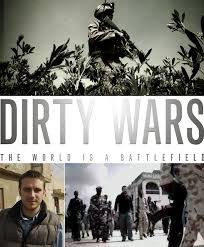
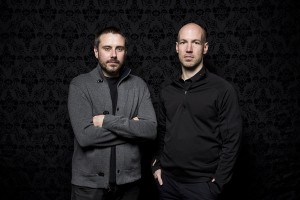
Dirty Wars: The World Is A Battlefield
The new documentary “Dirty Wars: The World Is A Battlefield” is an unique look into the covert wars brought by the United States. The film follows investigative reporter Jeremy Scahill into Afghanistan, Somalia and Yemen and analyzes expanded US drone warfare and the foreign policy that has allowed this destruction to take place. The film’s director Rick Rowley and Scahill went into these covert war zones to speak with families about the what they’ve seen and bring those stories back. As we’ve reported on Law and Disorder, the Obama Administration has continued to normalize the Bush Administration policies by empowering the Joint Special Operations Command and the use of drones.
Rick Rowley:
- The film is about the global covert war on terror.
- Jeremy and I have war reporters for over a decade. I became a war reporter because I thought the global war on terror was the most important story of our generation – killed hundreds of thousands of people cost untold billions yet most of it was unfolding in the shadows.
- Around the world today there are dozens of wars being fought in our name but without our knowledge and meaningful oversight.
- When we started shooting this film we thought it was a film just about Afghanistan. What we were seeing is the covert war in Afghanistan was eclipsing the covert war.
- More Afghans are killed and captured by covert units than by the entire 100 thousand strong NATO force that’s there.
- So we began to film to see what was up behind that.
- This is a unit that initially amounted to a few hundred guys who’s supposed to the most high level strategic missions, hostage rescue missions. If a nuclear weapon is stolen from the Ukraine they’d go and recapture it. That’s what they’re supposed to do.
- They’re doing 15-20 raids a night across Afghanistan, thousands of raids a year, going after mid level Taliban field commanders.
- The entire war is being fought by this clandestine group that wasn’t really built for this operation.
- We started to trace where JSOC was operating, that brought us to Yemen, and Somalia. Under the AQNX order, JSOC was authorized to operate in 26 countries clandestinely. Now under Obama 78 countries.
- I was staggered by the massive scale of this, the wholesale assassination machine.
- Current kill lists: It’s a permanent cycle of violence that’s being managed around the world.
- We interview Ron Weiden from the Senate Intelligence Committee. He’s a guy who’s trying to push for more disclosure and transparency in the Senate, but the entire time there’s a lawyer an aide inside the office who has to keep stopping him.
- There are secret interpretations of laws that exist on the books but would be shocking to the American people if they knew about them.
- We knocked on so many doors of night raids in Afghanistan, families shared stories with us of the most painful time in their life.
- They think that if the American people could only hear their story and their story were proven to be true, that somehow it would matter and make a difference.
- When we started this film 3 years ago, WBAI was talking about drones and kill lists, but it took until 6 months ago for that to work its way to editorial page of the Times and the Post.
- I’ve been a war reporter for more than a decade.
- Jeremy got on camera a number of whistle-blowers who are former operators or parts of JSOC, CIA people who are saying these kinds of discussion about blow back are happening inside their institutions.
- A lot of them talk about this as “mowing the lawn” the jihadists, insurgency will rise up and you go and chop it off but the grass will rise again.
- That’s permanently managing a level of acceptable chaos and violence. This war remains secret for a reason, that if everyone knew about it there would be a popular outrage.
Guest — Rick Rowley, is a director and cinematographer. Over the course of fifteen years, Richard Rowley, co-founder of Big Noise Films, has made multiple award-winning documentary features including Fourth World War and This Is What Democracy Looks Like. His shorts and news reports are also regularly featured on and commissioned by leading outlets including Al Jazeera, BBC, CBC, CNN International, Democracy Now!, and PBS. Rowley is a co-founder of the Independent Media Center. Rowley has been a Pulitzer Fellow, Rockefeller Fellow, a Jerome Foundation Fellow, and a Sundance Documentary Film Program Fellow.
———————————————————-
Afghanistan War, CIA Sponsored Terror, Civil Liberties, Criminalizing Dissent, Cuba, Extraordinary Rendition, FBI Intrusion, Guantanamo, Habeas Corpus, Human Rights, Political Prisoner, Surveillance, Targeting Muslims, Torture, War Resister
Podcast: Play in new window | Download
Updates:
- A Phone Call To Save Lynne Stewart’s Life:
- Attorney General Eric Holder – 1 202 514 2001
- White House President Obama – 1 202 456 1414
- Federal Bureau of Prisons – Director Charles Samuels – 1 202 307 3198 ext 3
—-
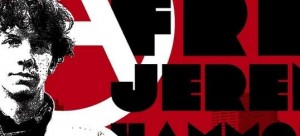

Jeremy Hammond, Bradley Manning and Julian Assange: Michael Ratner
Michael Ratner discusses attending Jeremy Hammond guilty plea in open court last month, Bradley Manning’s trial that starts June 3, 2013 at Fort Meade and how a Fox News reporter feels the same chilling effect of free speech by having his investigative work under suspicion as co-conspirator or aiding and abetting.
Jeremy Hammond: “Now that I have pleaded guilty it is a relief to be able to say that I did work with Anonymous to hack Stratfor, among other websites,” according to a statement released by Hammond on Tuesday. “Those others included military and police equipment suppliers, private intelligence and information security firms, and law enforcement agencies. I did this because I believe people have a right to know what governments and corporations are doing behind closed doors. I did what I believe is right.”
- Jeremy Hammond pleaded guilty to one count of conspiracy to access a protected computer.
- It’s under the Computer Fraud and Abuse Act.
- Jeremy Hammond was facing 32 years to life. He could be sentenced to up to 10 years.
- Interestingly, Wikileaks doesn’t appear in what he pleaded to. He or the group uploaded some 5 million emails.
- One of the emails is about a sealed indictment on my client and CCRs client Julian Assange.
- Julian Assange: Jeremy is a political activist and whistle-blowing is one of the means he uses for political activism.
- Bradley Manning pleaded guilty to 20 years in prison already. The key crime they’re trying to get Bradley for is aiding the enemy.
- The government is sledge hammering any criticism from a military person.
- Petition for Jeremy Hammond
Law and Disorder Co-host Attorney Michael Ratner, President Emeritus of the Center for Constitutional Rights (CCR), a non-profit human rights litigation organization based in New York City and president of the European Center for Constitutional and Human Rights (ECCHR) based in Berlin. Ratner and CCR are currently the attorneys in the United States for publishers Julian Assange and Wikileaks. He was co-counsel in representing the Guantanamo Bay detainees in the United States Supreme Court, where, in June 2004, the court decided his clients have the right to test the legality of their detentions in court. Ratner is also a past president of the National Lawyers Guild and the author of numerous books and articles, including the books The Trial of Donald Rumsfeld: A Prosecution by Book, Against War with Iraq and Guantanamo: What the World Should Know, as well as a textbook on international human rights.
—–
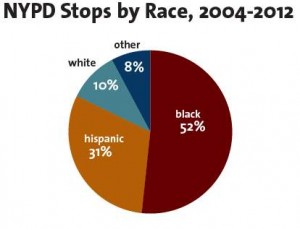
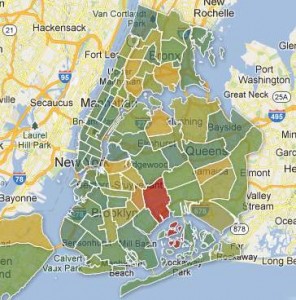
Stop and Frisk Lawsuit Closing Arguments
Closing arguments were heard on both sides last week on the Stop and Frisk case known as Floyd v. City of New York. This is a class-action lawsuit challenging the NYPD’s unconstitutional stop-and-frisk policy. The case charges the NYPD with a policy and practice of unreasonable, suspicion-less and racially discriminatory stops in violation of the Fourth Amendment’s prohibition against unreasonable searches and seizures and the Fourteenth Amendment’s Equal Protection Clause barring racial discrimination.
Stop and Frisk has increased over 600 percent in New York City. In 2009 New York City, a record 576,394 people were stopped, 84 percent of whom were Black and Latino residents — although they comprise only about 26 percent and 27 percent of New York City’s total population respectively. Ten years of raw data obtained by court order from the New York City Police Department (NYPD) showed that stop-and-frisks result in a minimal yield of weapons and contraband.
CCR Senior Staff Attorney Darius Charney:
- The closing was really interesting because the judge asked a lot of questions of both sides.
- It was more like an oral argument as you would do in an Appeals Court.
- This was a bench trial, there was a judge but no jury.
- Because of that the judge herself took the role of asking a lot of questions of witnesses.
- I think the police departments’ at least public position on this is really a problem created by a bunch of left wing lawyers and the media.
- In our class action (8 years) there have been over 4.5 million recorded stops by the police department but the actual number of stops are probably higher. About 90 percent of that 4.5 million there is no discovery of criminal activity – 90 percent are released and not given a ticket.
- The police department claims the focus of this program is to get illegal guns off the street about .13 percent results in the recovery of a gun.
- You actually find a gun one or two times out of a thousand.
- Reasonable, articulatable suspicion which the Supreme Court set out about 45 years ago – Terry v Ohio.
- (NYPD) they were very frank about it and sincere when they said – Look most reported crime is black or latino suspect
- If you’re talking about individualized suspicion just because someone happens to be the same race as crime suspect doesn’t make them suspicious.
- The two most common reasons these police officers are checking off on the forms for why they stop people is furtive movements and high crime area.
- They’ll try to muddy the waters by trying to mischaracterize what it is we’re actually complaining about. How can you criticize us for sending more police officers to high crime neighborhoods.
- What we’re complaining about is how officers behave there and how they treat the people who live there.
- Opening statements: It’s difficult to try to synthesize that much evidence into an hour and a half.
- This fight really goes back 14-15 years to the late 90s and what happened after the murder of Amadu Diallo.
- The first lawsuit that they did, the Daniels Case came about because of the work of grassroots organizations.
- Communities United For Police Reform
- We anticipate by July we will know what she (the judge) will decide.
- We learn the lesson if you leave it up to the police department and this mayoral administration to change things on their own, they’re not going to do it because they think what they’re doing is right.
Guest – Attorney Darius Charney, senior staff attorney in the Racial Justice/Government Misconduct Docket. He is currently the lead counsel on Floyd v. City of New York, a federal civil rights class action lawsuit challenging the New York Police Department’s unconstitutional and racially discriminatory stop-and-frisk practices, and Vulcan Society Inc. v. the City of New York, a Title VII class action lawsuit on behalf of African-American applicants to the New York City Fire Department which challenges the racially discriminatory hiring practices of the FDNY.
—
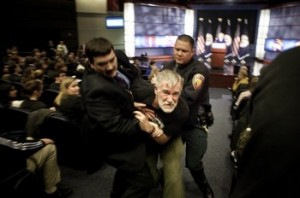
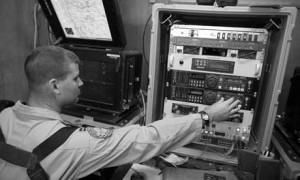
Doubting Obama’s Resolve To Do Right: Ray McGovern
We continue our discussion on killing people using drone warfare with returning guest Ray McGovern. When President Obama delivered a major speech on counter-terrorism, he announced a shift in his administration’s use of drones. The Obama Administration has conducted hundreds of drone strikes in several countries, killing civilians and so far reported, four US citizens. Critics point out that as the Obama Administration assassinates its’ suspects, it also avoids the legal complications of detention. London based bureau for investigative journalism estimates that about 830 civilians including women and children may have been killed by drone attacks in Pakistan. 138 in Yemen, and 57 in Somalia.
Former CIA analyst Ray McGovern:
- It was a masterpiece of oratory and rhetoric, but it was deceptive through and through.
- Those of us who had been watching this know he lied through his teeth on many occasions.
- He has the power as we all know to release 86 prisoners (Guantanamo) in the next hour.
- Why would he do all that? Why would he be afraid to take the drones away from the CIA?
- Well, I’ve come to the conclusion that he’s afraid. He’s afraid of what happened Martin Luther King Jr.
- At a small dinner with progressive supporters – after these progressive supporters were banging on Obama before the election . . . Why don’t you do the things we thought you stood for? Obama turned sharply and said Don’t you remember what happened to Martin Luther King Jr.?
- I’m convinced the President of the United States is afraid of the CIA.
- Does he have any reason to fear the CIA? Well he sure as heck does. For those of your listeners who have not read James Douglas’ JFK and the Unspeakable, you need to read that, because it’s coming up on 50 years.
- John Kennedy signed 2 executive orders just a month or so before he was killed. One of them said we’re pulling out a 1000 troops from South Vietnam. The other said we’re pulling out the bulk of the troops by 1965, we’re finished in Vietnam.
- I think he’s just afraid and he shouldn’t have run for president if he was going to be this much of a wuss.
- My father was professor of law at Fordham University for about 35 years. My daughter, my brother, their all lawyers. I have this notion that when someone comes in after building a record against torture and kidnapping, and black sites, and they come in and say we think this is bad but nobody should be prosecuted for it. .
- It’s not a dichotomy here, it’s deliberate duplicity with a rhetorical flourish.
Guest – Raymond L. McGovern, retired CIA officer turned political activist. McGovern was a Federal employee under seven U.S. presidents in the past 27 years. Ray’s opinion pieces have appeared in many leading newspapers here and abroad. His website writings are posted first on consortiumnews.com, and are usually carried on other websites as well. He has debated at the Oxford Forum and appeared on Charlie Rose, The Newshour, CNN, and numerous other TV & radio programs and documentaries. Ray has lectured to a wide variety of audiences here and abroad. Ray studied theology and philosophy (as well as his major, Russian) at Fordham University, from which he holds two degrees. He also holds a Certificate in Theological Studies from Georgetown University.
————–
Law and Disorder March 3, 2010
JFK and the Unspeakable: Why He Died and Why It Matters by Jim Douglass
Jim Douglass:
- John F. Kennedy’s experience in WWII: He was in the South Pacific, he volunteered. He was on that PT boat.
- What happened on that PT boat, is that it got split into two by a Japanese destroyer. He lost brothers and friends at that time. An extraordinary experience being adrift on the ocean warning other PT boats. The experience create a distrust in military authority.
- He said that he wanted to splinter the CIA into a thousand pieces and scatter to the winds.
- As Kennedy said to his friends, “they figured me all wrong.”
- The Unspeakable: the kind of evil and deceit that seems to go beyond the capacity of words to describe. The midst of war and nuclear arms race, the assassinations of Kennedy, Martin Luther King and Malcom X that the term was used.
- JFK’s vision is articulated in the address June 10, 1963, arising from the turnaround of the missile crisis and Bay of Pigs.
- He wanted to move step by step into a disarmed world. Nikita Khrushchev put that speech all over the Soviet Union. The Cuban Missile Crisis is a deeply misunderstood part of our history, because it’s usually portrayed as Kennedy going to war with Nikita Khrushchev and beating him.
- The truth was that Kennedy and Nikita Khrushchev were in over their heads, the US generals wanted nuclear war, because they had more warheads than the Soviets.
- Nikita Khrushchev: We now have a common enemy from those pushing us toward war.
- At that point the Cold War turned upside down because Kennedy and Khruschev became closer to each other than either was toward their own military power system.
- Vietnam: Kennedy’s military people would not give him an exit policy. He signed the withdrawal order from Vietnam before he was assassinated.
- His friends said that he had an obsession with death. It was not an obsession but a real assessment that he was going to die. If you try to turn around a national security state that is dominating the world,
- and you do so as president of the United States, of course you’re going to die. Kennedy knew that.
- The book is a story on the deliberate destruction of hope, the vision of change, a turning of this country all of which was happening and had to be stopped. US Agencies killed Dr. Martin Luther King – 1999 Verdict
- We’re in the same scene right now with Petraeus and McChrystal setting up Obama. They were dictating terms to Obama, unlike Kennedy, he did not face them down.
- We need to get out ahead of Obama so that he can do something.
Guest – James W. Douglass, author and longtime peace activist.
————————————————————
Afghanistan War, Civil Liberties, Criminalizing Dissent, Death Penalty, Extraordinary Rendition, Guantanamo, Habeas Corpus, Human Rights, Military Tribunal, Political Prisoner, Prison Industry, Targeting Muslims, Torture, Truth to Power, War Resister
Podcast: Play in new window | Download
Updates:
- FDNY Lawsuit Update
- Guatemalan Genocide Verdict Overturned
——
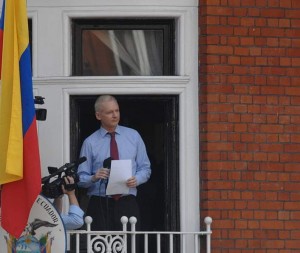
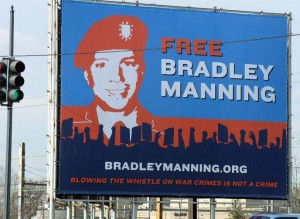
We Steal Secrets: The Story of Wikileaks – Michael Ratner
Our own Michael Ratner delivers a critical review of the film documentary “We Steal Secrets: The Story of Wikileaks” by director Alex Gibney. The annotated transcript, reveals errors, rank speculation and a focus on personality that detracts from the important revelations by Manning and published by WikiLeaks. Bradley Manning’s 12-week trial commences on Monday (3 June) and the film may have been released to take advantage of that date. Manning may face life in prison and could potentially face the death penalty. Julian Assange remains in the Ecuadorian embassy legitimately fearful that extradition to Sweden is a one way ticket to the US and potential for life in prison.
Attorney Michael Ratner, attorney in the US for Julian Assange and Wikileaks:
- (The film) does a great disservice to Bradley Manning and Julian Assange.
- I think it trivializes the incredible courage that both of them had as well as what was revealed by the documents.
- Julian Assange declined an interview by Alex Gibney and no one currently associated with Wikileaks participated in the film. This may explain in part Gibney’s poor treatment of Julian Assange.
- What grabs you immediately is the title, “We Steal Secrets: The Story of Wikileaks.” Wikileaks is a publisher. Yet the title implies that the story of Wikileaks is the story of it stealing secrets.
- That implication plays into the government’s theory that somehow Wikileaks and Julian Assange are co-conspirators with Bradley Manning in taking secrets. The film does so in other places as well.
- A second criticism is that part of the film focuses on Bradley Manning’s psychological problems and implies that those are the basis for Manning’s revelation of documents.
- Gibney has said as much in interviews given after the film: “I think it raises big issues about who whistleblowers are, because they are alienated people who don’t get along with people around them, which motivates them to do what they do.”
- In fact, Manning gave an incredibly moving political explanation for each leak of documents; an explanation not covered in any detail in the film.
- Third, Gibney claims Wikileaks is dead. Nothing could be more of fable.
- Since December 2011 Wikileaks has released the SpyFiles, the Stratfor emails dubbed the GIFiles, the Syria Files and in April 2013 both Cablegate and 1.7 million Kissinger Cables in an easily searchable Plus Public Library of US Diplomacy.
- Fourth, somehow, Gibney claims there are no charges filed against Julian Assange. How does he know that? It’s a secret Grand Jury, and if there’s an indictment, it’s going to be a sealed indictment because an indictment is not made public when a person is not in custody. In fact, there is significant, irrefutable evidence of an on going investigation and its likely there is a sealed indictment.
- Gibney diminishes the risk to Julian Assange if he were sent to the United States because he wants to claim that Assange is in the embassy to avoid going to Sweden to answer questions about sexual misconduct allegations. But it does not work. Were Sweden to guarantee Assange would not be sent to US he would go there to answer questions.
- Assange has also offered to answer those questions in the embassy–Sweden has refused. In the end, the problem is the United States–Gibney, in his effort to demean Assange, needs to play down the huge risk he faces in the US.
Law and Disorder Co-host Attorney Michael Ratner, President Emeritus of the Center for Constitutional Rights (CCR), a non-profit human rights litigation organization based in New York City and president of the European Center for Constitutional and Human Rights (ECCHR) based in Berlin. Ratner and CCR are currently the attorneys in the United States for publishers Julian Assange and Wikileaks. He was co-counsel in representing the Guantanamo Bay detainees in the United States Supreme Court, where, in June 2004, the court decided his clients have the right to test the legality of their detentions in court. Ratner is also a past president of the National Lawyers Guild and the author of numerous books and articles, including the books The Trial of Donald Rumsfeld: A Prosecution by Book, Against War with Iraq and Guantanamo: What the World Should Know, as well as a textbook on international human rights.
——-
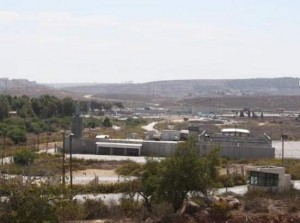
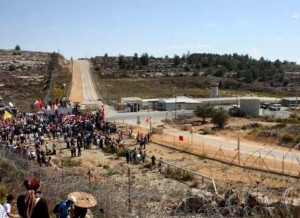
Palestinian Prisoners Legal Support: Addameer
On the 17th of April, hundreds of Palestinians filled the streets in the West Bank in protest to mark Palestinian Prisoners Day. Right now there nearly 5000 Palestinian security prisoners in Israeli jails, 14 of them are women. More than half have been convicted, 33 percent have not been sentenced and 3 percent are being held in administrative detention. 235 of Palestinian prisoners are minors ranging in age from 14 to 18. As many listeners may know, Palestinian activists are often targeted and detained. In prison, tactics are used such as solitary confinement and forbidding family contact.
Attorney Sahar Francis:
- Currently there are still 4900 Palestinians inside Israeli prisons. Most of them are adults. There are 236 minors under age 18. 14 women and 14 Parliamentarians.
- The majority of them I would say were arrested because of political activism and being involved in the peaceful struggle, and resistance especially in the last couple of years against the wall, the checkpoints, the settlements, land confiscation, house demolition all these practices of the occupation.
- Including Jerusalem residents, they would be arrested inside Israel but they could be subjected to 2 different legal systems. The Israeli legal system or the military system that applies just to the Occupied Territories.
- Settlers are not subjected to the military court system that is imposed on the Palestinians in the Occupied Territories.
- It’s violation of International Law to move them to prisons inside Israel. This is what Israel was doing since 1995.
- They moved the prisoners from prisons inside the Occupied Territories to prisons inside Israel and this is a violation for the 4th Geneva Convention Act actually.
- The number of Palestinian prisoners decreased compared to previous years, 2005, 2006.
- Since 1967 til today more than 750 thousand Palestinians were arrested. It’s almost hitting every Palestinian house. It’s estimated to be about 40 percent of the Palestinian men population that were at least once incarcerated in their life.
- In the 7 years of Oslo, Israel kept 1500 political prisoners.
- Now I can say that the majority of the prisoners would be sentenced for periods less than 10 years.
- There’s around 430 of them sentenced for life.
- We still have cases of families where they have 4 sons or 5 sons in the same time in prison.
- In some cases they (the sons) would be distributed in all prisons, in north, south of Israel and the mother would be traveling all the way trying to visit them.
- The women prisoners number was much higher we used to have 120 female prisoners.
- Most of them involved in political activism, mainly supporting their brothers or husbands in their political activism or in stop cases involved in trying to stop soldiers.
- Addamer was established in 1991 by ex Palestinian political prisoners and lawyers who were aiming to give legal support for free to Palestinian prisoners in military court system.
- Our focus is on political arrests. We have 8 members in Addamer. We are members of the Israeli Bar Association and members of the Palestinian Bar Association.
- Most of the cases in military court would end in plea bargain without exhausting the system because neither the system or the lawyers don’t have much trust in the system.
- You could end up being interrogated in the detention centers inside Israel and they will decide whether to transfer the case for the civil prosecution or the military prosecution.
- You can have a person 90 days before charging them (military system) Civil system it’s 35 days.
- Law In These Parts – Film Documentary.
- Regarding torture and terms such as enhanced interrogation techniques : In our place its called moderate physical pressure.
- We can’t sue them because the prosecutors claim out of necessity we used the torture.
- Seeing the photos of Abu-Ghraib with this sack on the detainee’s heads, this was used in the Palestinians case since the early years of the occupation.
- This is the method that was used to prevent them from breathing, from sleeping, and they were tied to these kindergarten small chairs with the sack on their head, with playing music 24 hours a day. Then after in this position for 2 weeks, the interrogator shake you.
- We’re promoting Boycott Divest and Sanction.
Guest – Sahar Francis, human rights lawyer and director of the Palestinian NGO Addamer. (Arabic for conscience) Prisoners Support and Human Rights Association is a Palestinian non-governmental, civil institution which focuses on human rights issues. Established in 1992 by a group of activists interested in human rights, the center offers support to Palestinian prisoners, advocates the rights of political prisoners, and works to end torture through monitoring, legal procedures and solidarity campaigns.It’s an organization offering legal services to political prisoners under Israeli occupation and represents prisoners in Israeli military and civil courts.
————————————————————–



























